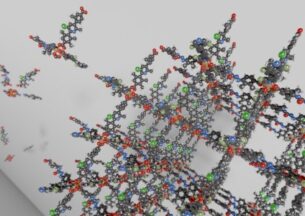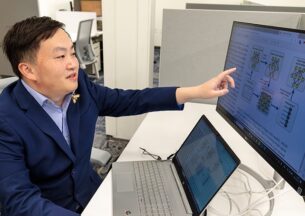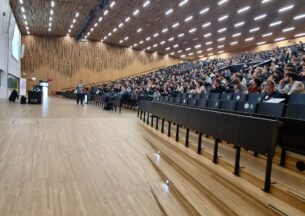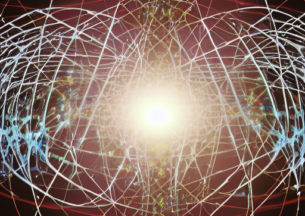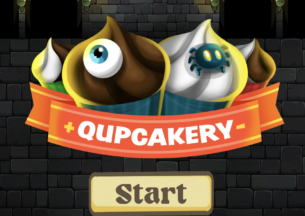Postdoc Kate Smith Receives IEEE Early Career Award in Microelectronics
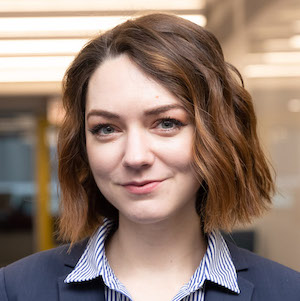
Kate Smith, a postdoctoral researcher in the research group of Professor Fred Chong and the Chicago Quantum Exchange’s IBM Postdoctoral Trainees Program, received the Kenneth C. Smith Early Career Award in Microelectronics from the IEEE Computer Society, Technical Committee on Multiple-Valued Logic (IEEE TC MVL).
The award, which is typically given to tenure-track faculty, celebrates Smith’s “contributions to quantum computing systems and circuits.” Smith has also been an active member of the IEEE TC MVL community, serving on its program committee and chairing next year’s International Symposium of Multiple-Valued Logic in Dallas, Texas.
The honor is also one of the first given by the society for research in the accelerating field of quantum computing, though the topic has long been of interest to the multi-disciplinary society. Multiple-valued logic covers anything beyond standard binary computing, and quantum computing — with its qubits, qutrits, and qudits — certainly fits in.
“The society focuses on not only circuits, but also more logic and philosophically different types of concepts for computing,” Smith said. “It’s just a really cool community. Because it’s a mix of engineers, computer scientists, mathematicians and more, a lot of diverse research that fits into this group. MVL has a far reach, from circuits and algebra to formal methods, soft computing, approximate computing, and even machine learning.”
Smith joined the University of Chicago in early 2020 as the first member of the Chicago Quantum Exchange’s IBM Postdoctoral Trainees Program, which combines access to CQE member institutions such as UChicago and Argonne along with opportunities to work with the IBM Q Network. She chose to work within Chong’s research group, which leads the multi-institutional EPiQC collaboration and develops new tools and approaches that narrow the gap to practical quantum computing.
During her time in Chicago, Smith has conducted research on making quantum computation more scalable via approaches such as quantum computer architecture improvements at the hardware and software levels and high dimensional encodings. She’s also worked on EPiQC projects using software to improve the fidelity of near-term quantum computers, designing a new compiler that optimized instruction scheduling for quantum circuits. The approaches could help quantum computers make the leap from experimental devices to powerful cloud resources, she said.
“We’re becoming more and more dependent on cloud resources for our personal information and for our computing,” Smith said. “And for the foreseeable future, it looks as though quantum computing is going to be a cloud-based resource; we’re not all going to have our own personal quantum computers in our homes. So we’re figuring out how to use those resources most efficiently and securely, and pushing beyond the frontiers of those machines via software.”
Outside of research, Smith joined EPiQC initiatives for advancing quantum computing education, co-teaching the new “Introduction to Quantum Computing for Everyone” online course with Associate Professor Diana Franklin. The course debuted in the spring and will start a second session this summer, guiding students through the concepts, math, and programming needed to understand and operate this exciting new class of computers.
“We are hoping to teach students who, starting from beginning of the class, might have no idea about what quantum computing is. By the time you wrap up the class, however, you have a basic understanding of real quantum algorithms and actually have the experience of being able to run some simple circuits on a real quantum machine,” Smith said.
For more on Smith, read her Q&A with the Chicago Quantum Exchange from 2020.




